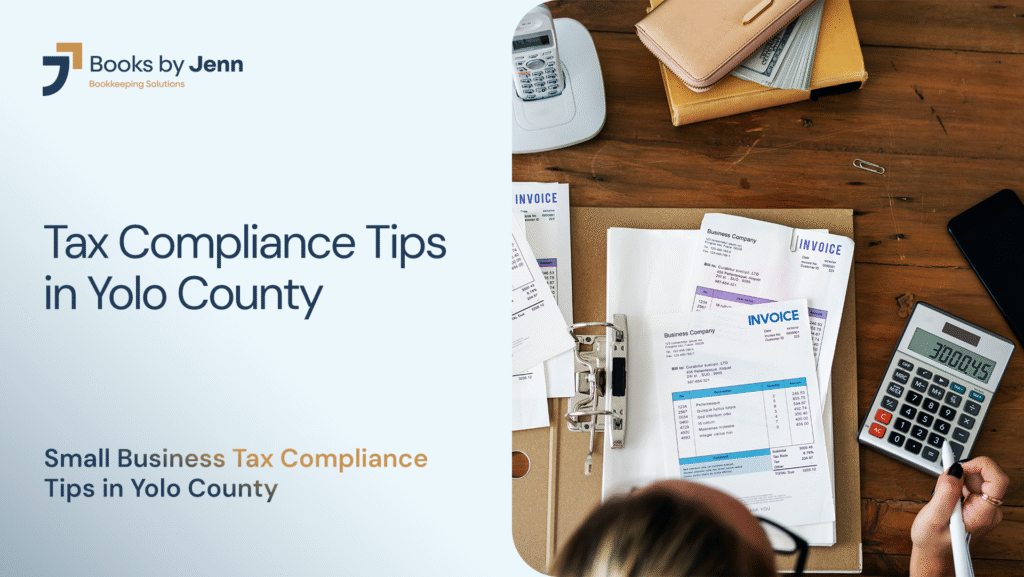Hey there, dreamers, you know being a business owner means living your passion and dream at the same time, but this sweet dream often becomes a nightmare when you are bogged down by paperwork. The solution to this is in the master’s hand.
Because they know what they need to do for small business tax compliance in Yolo County. Let them figure out how they can be the paracetamol of your headache, and you excel in what you are good at. I mean, work on excelling your business idea.
Why Tax Tips are the Foundation of Your Small California Business
Before digging deeper into your finance essentials, let’s figure out the state’s federal tax landscape. They set the rules, now it’s up to you to be aware of them and get your head straight to detangle them.
Understand Your Business Structure
You are the business owner, so you need to be aware of your business’s legal structure (sole proprietorship, LLC, S-Corp, or C-Corp) to ditch the hardcore tax type. Your business structure will decide your tax significants.
For instance, a sole proprietor reports business income and expenses on their personal tax return (Form 1040, Schedule C), while an LLC business might be taxed as a sole prop, a partnership, or a corporation. Each structure comes with its own different filing deadlines and requirements.
Know Your Agencies
Next step, have an eye for your agency. You’ll be dealing with more than just the IRS. As a California small business owner, the primary tax agencies you need to be aware of are:
- Franchise Tax Board (FTB): California’s state tax agency administers personal and corporate income taxes. In addition to these, it also handles audits and collections, taxpayer assistance, and non-tax debt collections.
- California Department of Tax and Fee Administration (CDTFA): If you sell physical goods, the CDTFA is where you get your seller’s permit and taxpayer assistance, as well as report sales and use tax.
- Employment Development Department (EDD): This one covers a broad spectrum. If you have employees, you’ll work with the EDD for state payroll taxes, including profit benefits, unemployment insurance, and state disability insurance.
Staying on top of your California small business tax tips means knowing which agencies apply to you and their specific requirements.
What You Need to Know as a Local Business Owner In Yolo County?
Once you are aware of the agencies, as a local, you must fill out some fields for local tax regulations. Ignoring these can lead to penalties and a whole lot of unnecessary stress.
Local Business Licenses
As a local, it’s a must-have. Many cities in Yolo County, such as Davis, Woodland, and West Sacramento, require a local business license. Fees and requirements can vary depending on your business type and estimated gross receipts.
For example, the City of Davis has a tiered fee structure based on your revenue bracket. You must check with your city’s finance or business license department to ensure that you’re registered accurately.
Sales Tax
The sales tax rate depends on your location within the county. The statewide rate is 7.25% local taxes. For instance, as of 2025, Woodland’s combined sales tax rate is 8.00% due to special taxes.
If you are not using the accurate rate, the CDTFA will have issues, and to prevent this, local businesses should keep themselves up-to-date about business tax laws.
Property Taxes
This concerns the kind of property to figure out the tax compliance and regulations. Suppose your business owns real estate or certain types of personal property (like machinery or office furniture).
In that case, you may be subject to property taxes, which the Yolo County Assessor and Tax Collector administer. Plus, these deadlines are separate from income tax filings, so it’s vital to stay on top of those bills.
Some Nitty-Gritty Tax Filing & Compliance Pointers

Ok, once you’re registered and have a handle on the agencies, that’s where the real work begins. Now we have some key small business tax filing California tips to keep you on the straight and narrow:
- Keep Meticulous Records: This is arguably the most important tip. Maintaining clean, organized books is the backbone of all tax compliance for small businesses. Clear record of all income, expenses, payroll data, and sales receipts. Good bookkeeping makes tax season a breeze, and it can be a lifesaver in the event of an audit.
- Separate Finances: Mixing personal finances along with your personal ones is like hitting yourself with a rock, so never do that. Use a separate business bank account and credit card. This will save you from a massive headache when it’s time to file.
- Know Your Deadlines: Want to slow poison your finances, start missing the deadline, and incurring penalties and interest. Keep an eye on the dates for 2025 filings.
- Don’t Forget Payroll & Sales Taxes: Payroll and sales taxes are on a different schedule than your annual income tax return. Sales taxes are typically paid monthly, quarterly, or annually, depending on your business’s sales volume. Track the deadlines, be proactive with your payroll & sales tax tips, and avoid penalties.
Why Expert Bookkeeping is a Game-Changer
Not only for some people but for almost everyone, finances are hard to track. Especially when you are a business owner, and the AI spectrum is becoming diverse day by day, regulations are a hard nut to crack.
The above-mentioned details can be considered a fine guide, but as a professional, the best practice is to seek professional assistance from those who know how the task is done. Because they know the unique requirements your assets are in need of.
This is where a professional bookkeeper becomes an invaluable asset. Those who just don’t record the transactions also ensure compliance with the relevant tax laws. It helps you identify the potential deductions with peace of mind, knowing your finances are in expert hands.
Conclusion
Navigating the world of tax compliance for small businesses in California is actually a full-time job. But as we keep looking ahead, there are a few key habits, like knowing your business structure, understanding your filing obligations with the right agencies, and keeping meticulous records.
Staying proactive as a Yolo County small business taxpayer is the best way to avoid stress, prevent penalties, and a shield of your hard-earned profits. But the good news is that you don’t have to go it alone.
If keeping track of your payroll, sales tax, and filing deadlines seems shattering, don’t get nervous and step ahead to give a consultation call. Let BooksByJenn handle the details so you can get back to what you love like growing your business and serving your community.

